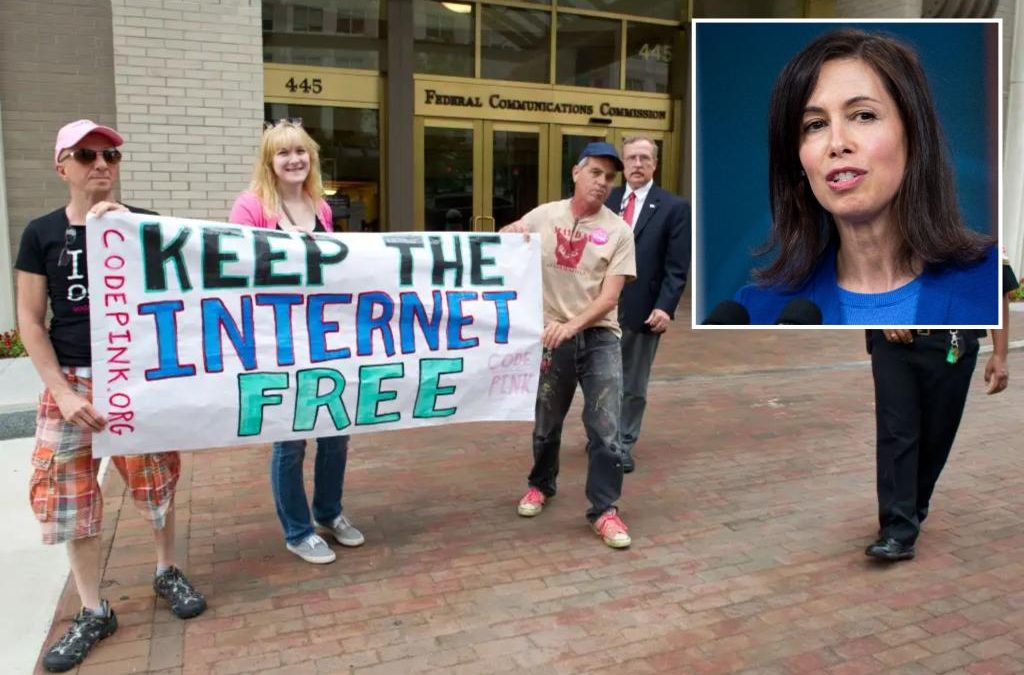The Federal Communications Commission will vote to reinstate landmark net neutrality rules and assume new regulatory oversight of broadband internet that was rescinded under former President Donald Trump, the agency’s chair said.
The FCC told advocates on Tuesday of the plan to vote on the final rule at its April 25 meeting.
The commission voted 3-2 in October on the proposal to reinstate open internet rules adopted in 2015 and re-establish the commission’s authority over broadband internet.
Net neutrality refers to the principle that internet service providers should enable access to all content and applications regardless of the source, and without favoring or blocking particular products or websites.
FCC Chair Jessica Rosenworcel confirmed the planned commission vote in an interview with Reuters.
“The pandemic made clear that broadband is an essential service, that every one of us — no matter who we are or where we live — needs it to have a fair shot at success in the digital age,” she said.
An essential service requires oversight and in this case we are just putting back in place the rules that have already been court-approved that ensures that broadband access is fast, open and fair.”
Reinstating the rules has been a priority for President Biden, who signed a July 2021 executive order encouraging the FCC to reinstate net neutrality rules adopted under Democratic President Barack Obama.
Democrats were stymied for nearly three years because they did not take majority control of the five-member FCC until October.

Under Trump, the FCC had argued the net neutrality rules were unnecessary, blocked innovation and resulted in a decline in network investment by internet service providers, a contention disputed by Democrats.
Rosenworcel has said the reclassification would give the FCC important new national security tools.
The agency said in its initial proposal that rules could give it “more robust authority to require more entities to remove and replace” equipment and services from Chinese companies like Huawei and ZTE.
Republican FCC Commissioner Brendan Carr opposed the move, saying that since 2017 “broadband speeds in the US have increased, prices are down (and) competition has intensified.”
He argued the plan would result in “government control of the internet.”
Despite the 2017 repeal, a dozen states now have net neutrality laws or regulations in place.
Industry groups abandoned legal challenges to those state requirements in May 2022.
Source




